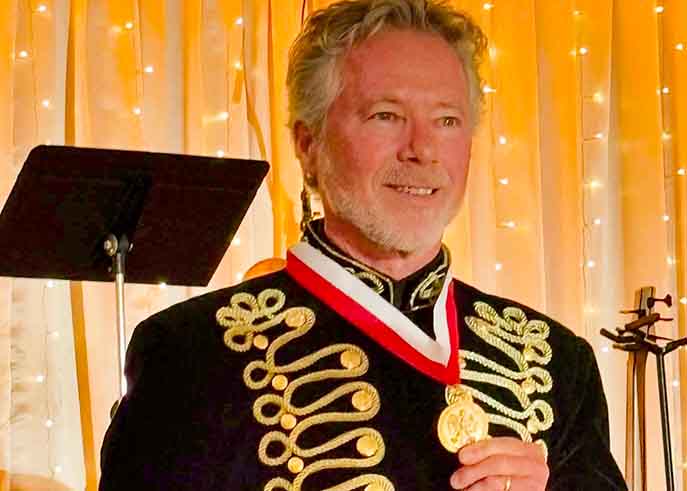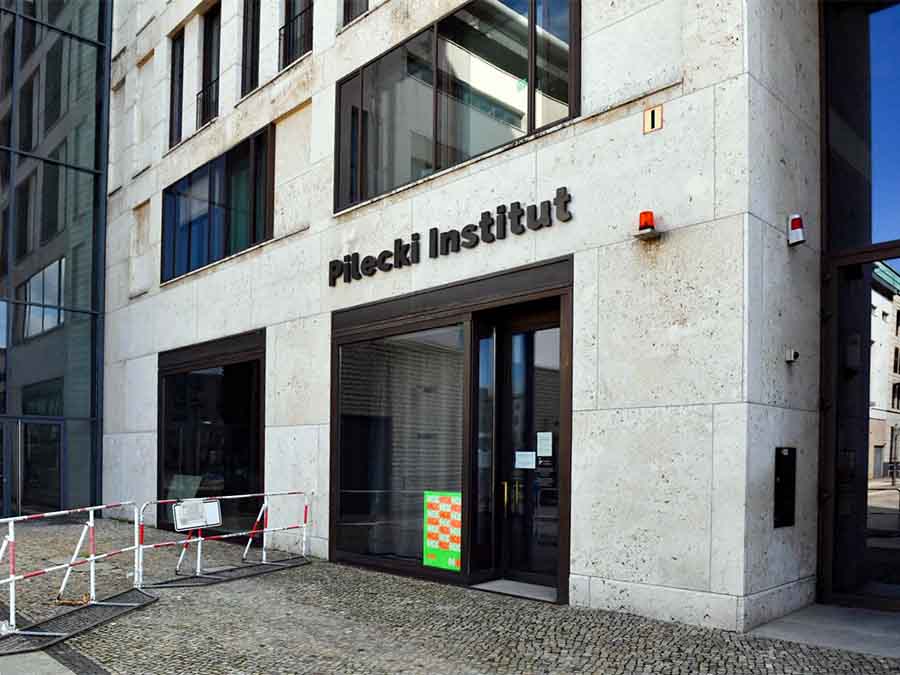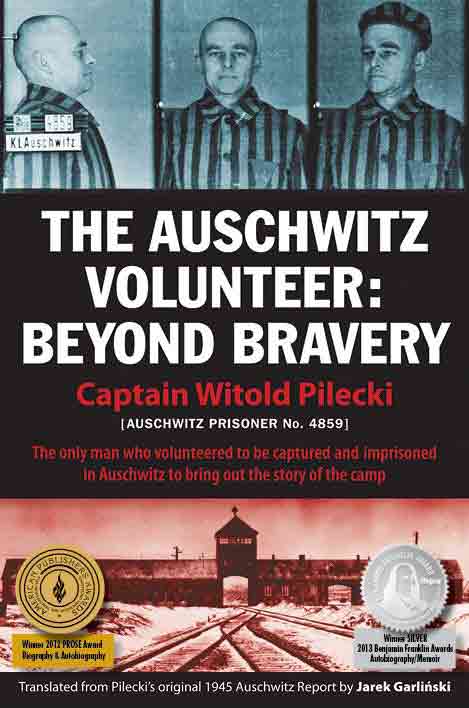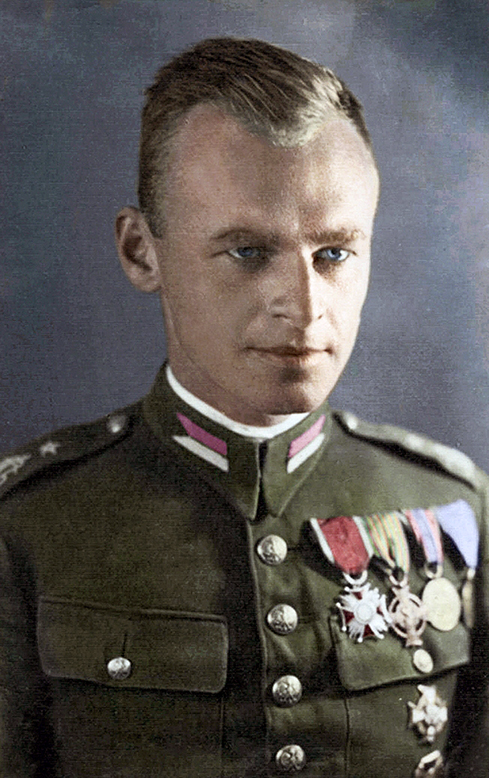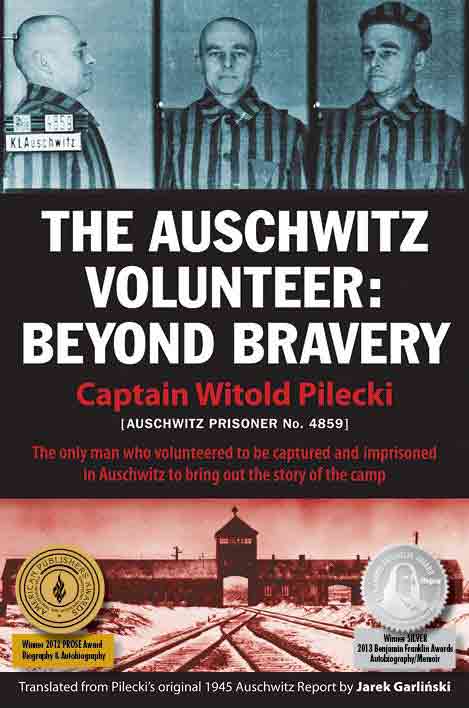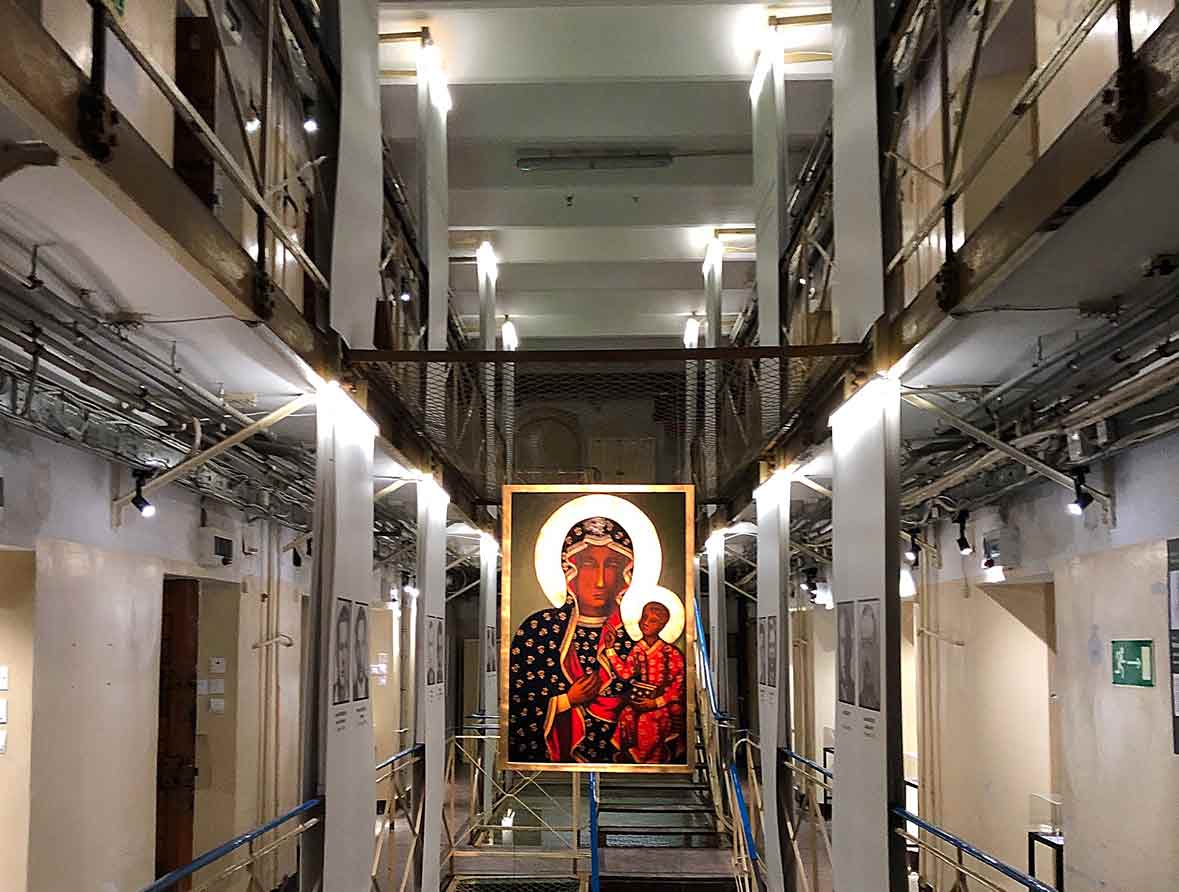The implementation of Polish historical policy in the United States is one of the most important tasks for the Polish state and the Polish diaspora. Polish politicians and enlightened representatives of the Polish diaspora around the world are aware of this.
Since 1989, there has been no precise vision of historical politics, there are no specific clear priorities in this matter. There is no support for individual projects, nor are there any transparent tools for their implementation. It often happens that, in order to satisfy the necessity to bring the Polish history and culture in the United States and around the world closer into focus, this problem is simply dealt with by people of noble heart who do not even have to be Polish to be able to see the need to show and promote humanistic values. It is worth mentioning here Norm Conard, his students from Kansas, and the project "Life In a Jar", in which he popularized Irena Sendler around the world. It is worth mentioning the curator of the Milwaukee Art Museum in Wisconsin, Laurie Winters, who showed Polish paintings to America in Milwaukee, St. Louis, and Los Angeles, through her exhibition entitled „Leonardo da Vinci and the Splendor of Poland”.
Kuryer Polski would like to introduce you to a certain Pole, Marek Probosz, living in California, who — with great success — alone and without anyone's help, introduces America to "one of the greatest heroes of the 20th century", as The New York Times wrote, to Captain Witold Pilecki.
There is no need to explain to anyone what role Captain Witold Pilecki plays in the Polish historical narrative. He is a figure that should be popularized for future generations in a globalized world. Pilecki embodies many threads with his life, he is an example of an unsurpassed model of humanism, uncompromising courage, and boundless love for his homeland.
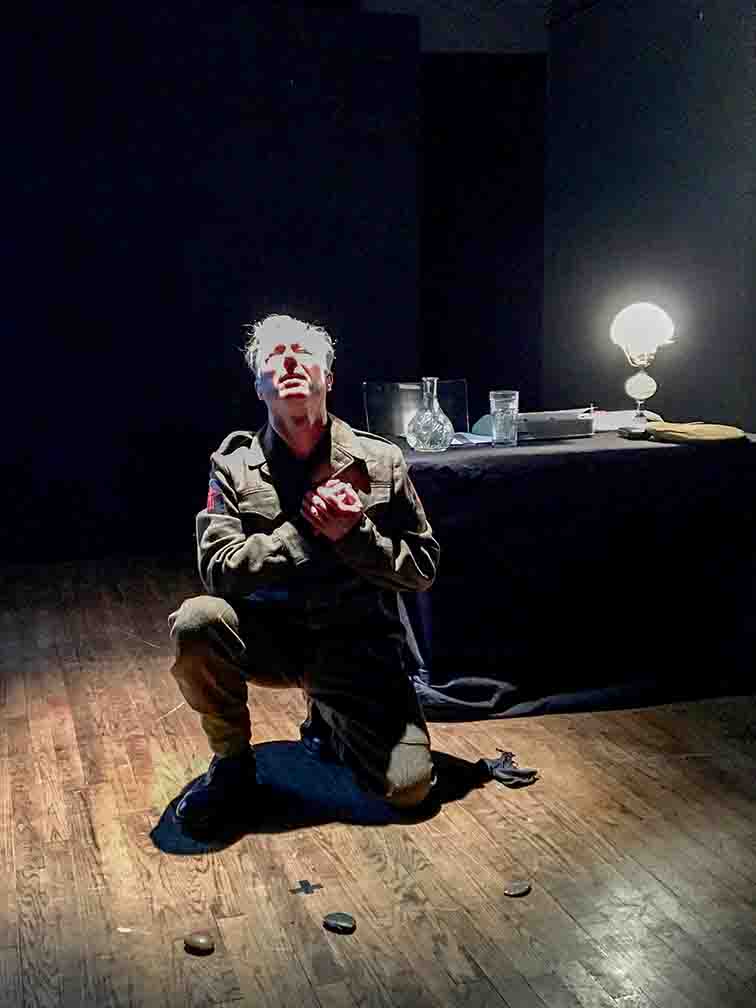
Waldemar Biniecki (WB): Marek, you were born in Silesia in Poland, you graduated from the famous "Łódź Film School", you played in about 60 films for 30 years in Poland, in the Czech Republic, Germany, France, Italy... You acted and directed in theaters in America, Poland, Czechoslovakia. The films with you won first prizes and awards, including those at world-class festivals in Cannes, Venice, San Sebastian and Karlovy Vary. How did it happen that, being the idol of your generation, in the midst of such a thriving career, you moved overseas?
Marek Probosz (MP): In 1987, I finished the cinematography for the film "Kocham kino" directed by Piotr Łazarkiewicz, I played the main role in it, the son of screen legends Zbigniew Cybulski and Elżbieta Czyżewska. This film was hailed as the Polish Cinema Paradiso. Without waiting for the premiere, I went further, this time to the West, to the Polish-American co-production And the Violins Stopped Playing film set. The film was about the German repressions against Gypsies, some of whom ended up in Auschwitz. In West Germany, in Hamburg, I had additional takes, and from there, at the invitation of the artistic director of the American Cinemateque, Gary Essert, as a star from Eastern Europe, I went to Hollywood for a 3-week symposium of filmmakers from around the world. Living in the legendary Hotel Roosevelt in Hollywood, overlooking the Chinese Theater in the Walk of Fame, visiting the City of Angels film studios, I had the opportunity to taste the life of real stars and masters of the cinema's "Dream Factory." For three weeks, mingling with them felt as something natural, but then the bubble burst and one had to ask the question: what next? What's the most important thing in my life? The answer came when I was staring at the TV, where the news showed striking members of Solidarity being ruthlessly beaten by ZOMO (militarized police of the communist regime in Poland –Ed.). It was the moment when it became clear to me that it was not the career, but that FREEDOM and LOVE were the most important values in my life. Regardless of the consequences, I chose freedom in the American world.
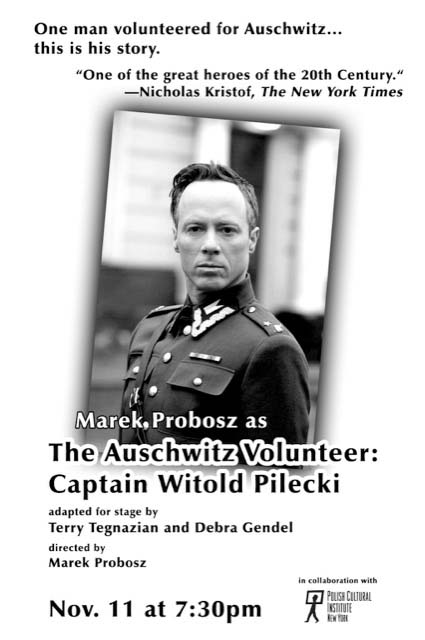
WB: You are also a graduate of the prestigious American Film Institute in Los Angeles, from which you graduated in 1993. Could you please tell us about it?
MP: Graduates of The American Film Institute are the heart and brain of the future of the US film industry, which has such a great influence on world cinematography. From here, successive masters of cinema set out onto the open waters. One of them is today's Hollywood star Darren Aronofsky, a colleague in the the same class, who was my second director at AFI on Fragment: To Death and I was his second director on Fortune Cookie. A few years ago, as many as four colleagues from my year at AFI were nominated for Oscars at the same time! To become a student there, you had to send your own film, fiction script, present your artistic output, plus all other required documents. The commission of experts made a brutal selection. From about 1,000 applicants from all over the world, 20 students were admitted to the directing department. I became one of them. There, I learned the craft of filming, storytelling in a universal way, so that it could reach viewers all over the world. I had to put aside any poetic visions, Polish symbolism and abstractions — the most important thing in AFI was a realistic narrative, learning how to convey history through the image the American way. My first film at AFI, Fragment: Until Death, was about a brutal murder, out of pure hatred, of an artist. I dedicated it to Fr. Jerzy Popiełuszko and Pier Paulo Pasolini — it was recognized as the best short film of 1992 by AFI.
WB: In Poland, before emigration across the great water, you were called "East European James Dean", in the United States you were nicknamed "De Niro of Poland". You have played in a variety of roles, in a variety of languages, on CBS's “Scorpion” series, ABC's “Scandal”, CBS's “Numbers”, US Network “MONK”, Paramount TV's “JAG” and many other projects. You perfectly portrayed the world cinema legend Roman Polański in the CBS series "Helter Skelter". For this role and for many other created characters, you have collected excellent reviews of the most important papers in the film industry: The New York Times, The Hollywood Reporter, Variety, etc. You brilliantly played the role of Odysseus in Philoktetes by Sophocles alongside the British stage star Henry Goodman at the prestigious Getty Villa theater in Malibu. You have collaborated with Oscar nominees and their award-winning actors: F. Murray Abraham, Warren Beatty, Annette Bening, Don Cheadle, Katharine Hepburn; cinematographers: Conrad Hall, John A. Alonzo, Ryszard Lenczewski, Matthew Libatique; composer Jan AP Kaczmarek; directors: Darren Aronofsky, Todd Field, Miloš Forman, John G. Avildsen, Agnieszka Holland, Scott Silver, Andrzej Wajda; costume designer: Theodor Pistek; interior decorator; Ewa Braun. You have received many prestigious awards. Where did your interest in the subject of World War II come from? And especially the figure of Witold Pilecki?
MP: Since my childhood, I grew up with the stigma of a family tragedy related to World War II. My grandfather, Jerzy Probosz, poet, prose writer, author of the theater play "The Wedding of the Highlanders of Istebna", was awarded with Wawrzyn Literacki (eng. Literary Laurel Wreath) in 1938 for his work by the Academy of Polish Literature in Warsaw. A year later he was arrested for the same work by the Germans, who — after invading Poland — as the first priority, transported our intelligentsia and patriots from the black list to concentration camps in Germany (they have not yet managed to build them in Poland). Grandfather was taken to the concentration camp in Dachau, where he was murdered in 1942. He orphaned nine children, while my father was 10 years old. On the day of his brutal arrest, my grandfather managed to scratch a few words on a scrap of paper to a friend he was going to see that day.
I wish you strength from my heart,
That you may endure every day and night!
Endure! Endure! Endure!
Even if you burn the earthly body down to dust,
Your spirit must survive.
The power of these words, their message, have become my life motto, the driving force of steadfastness. Before my emigration, before the collapse of the Berlin Wall and the Communism, one evening I was rehearsing for the play "Strict Supervision" by Jean Genet at the Old Powder Magazine Theater (pol. Teatr Stara Prochownia). Passing by the Field Cathedral of the Polish Army in Warsaw, on the door I saw a small poster with an eye-catching image. I came closer. In the light of the flickering candles, I saw the face of Witold Pilecki asking for a prayer. It was our first meeting. When I was returning from the trial late at night, the police had already removed Pilecki. Today, in retrospect, it comes to mind that the Captain had already chosen me right then.
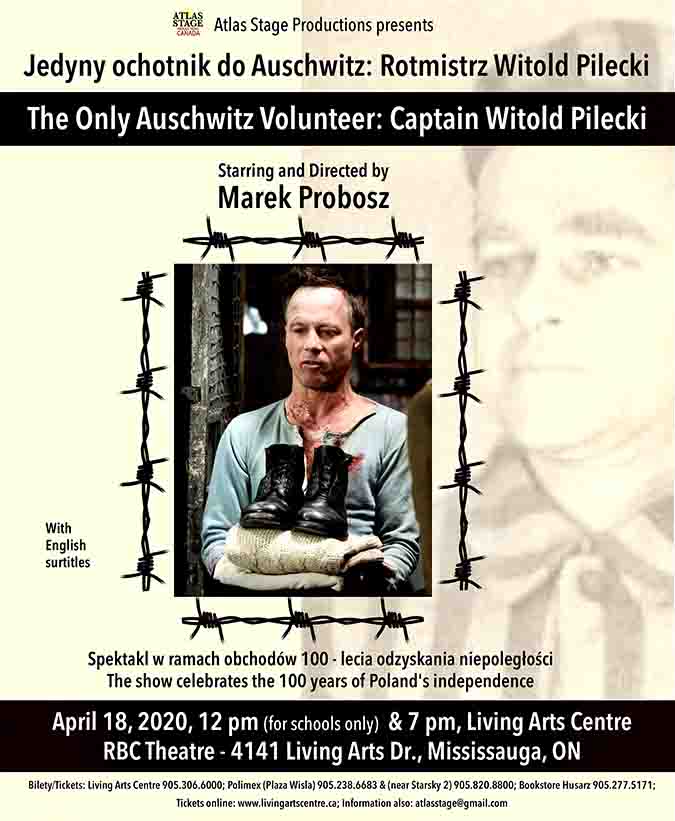
Many years later, in Los Angeles, I received a script from director Ryszard Bugajski with a proposal to play Witold Pilecki in the project "The Death of Captain Pilecki", with a short note "I found the perfect role for you. Hope you don't say NO." What happened next is history. In Poland, due to lack of funds, we had to make this film as a theatrical performance — the Factual Scenes of the TV Theatre in 2006. The script was largely based on documents from the archives of the Institute of National Remembrance (IPN, Instytut Pamięci Narodowej). For the first time in this performance, the words of the Captain comparing the torture of the Germans with the communists from Rakowiecka [the Ministry of the Interior prison –Ed.] were heard from the screen: "Auschwitz, it was nothing". The wide world, however, still does not know the history of the only Auschwitz volunteer, Witold Pilecki. I would like an epic film about him, because he is one of the greatest heroes of Poland and of the 20th century. For 16 years I have been traveling around the world with the film "The Death of Captain Pilecki" to festivals, universities, Holocaust museums, consulates etc.
After participating in the American radio program about Pilecki, All Things Considered for the NPR News in Washington, I was hired by the most popular audio book company in the United States — Audible.com — to record in English the entirety of the 10-hour-long Pilecki's Auschwitz reports. The recording received excellent reviews from the Washington Post, among others, and is now available to everyone around the world. For 7 years, I have played a multimedia show about Pilecki on the stages of Canada and the USA, The Auschwitz Volunteer, and then I directed a monodrama about the captain with which I flew to Broadway! I believed that a success in New York would provoke one of the professionals to convince the financiers to reach for their wallet and invest in this extraordinary story and to create an epic fresco, a great movie that would win the hearts and screens of the world. In Poland, unfortunately, "The Death of Captain Pilecki" was classified as a TV Theater and is not distributed in cinemas. Our Pilecki was not even invited to the Polish Film Festival in Gdynia, and I did not receive a single proposal from the TV Theater since playing this role...
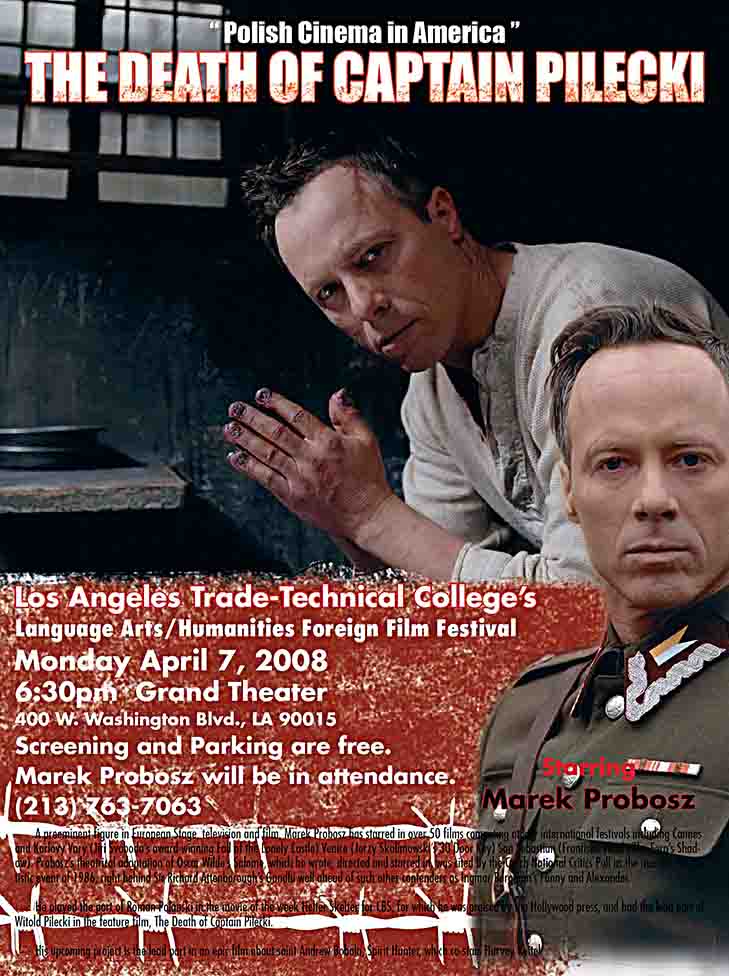
WB: Since 2005, you have been an assistant professor at the prestigious university — UCLA School of Theater, Film and Television in Los Angeles — where you teach movie and theater acting. For 4 years you also taught directing and acting at the exclusive film school — Emerson College in Los Angeles, for 4 years you trained talents in the cradle of many Hollywood stars at the Edgemar Art Center in Santa Monica. You conducted acting workshops at the A. Zelwerowicz Theater Academy in Warsaw. You directed your own written American feature "YMI" ("Why Am I"), the Audience Award at The Other Venice Film Festival 2004. In 2018, you were offered to lead the Master Class on Broadway! In the same year you became the Laureate of the Polish "Oscar" — the GOLDEN OWL for lifetime achievement for Polish culture abroad in the FILM category. You collected the award at the Polish Academy of Sciences in Vienna. In 2021, you taught acting at Williams College in Massachusetts (number one college in the US ranking of universities) and conducted acting workshops at the 3rd Polish Theater Congress in Chicago. For the year 2022 you became the Laureate of the jubilee 15th Pola Negri Festival in Lipno. In September, you will fly to Poland to receive the Pola Negri award and unveil your star on Pola Negri's boulevard. There were also more invitations to the screenings of the film and monodrama about Pilecki for 2022. You are a Renaissance man: actor, director, screenwriter, writer, producer. However, since 2005 you have been carrying out the mission of showing the world the character of Witold Pilecki. Do you have any allies in this mission?

Minneapolis, Minnesota, 2021
MP: Apparently it was decided somewhere up there. Pilecki is watching over me. Every year I add more bricks to the pile, so that even more people get to know the captain, I became his ambassador. On stage, I pronounce Pilecki's words in English from the book "The Auschwitz Volunteer: Beyond Bravery" published by the Californian publishing house Aquila Polonica. This year I was with The Death of Captain Pilecki in Minneapolis, Minnesota. The screening of the film and the almost 2-hour meeting with the audience were an extremely exciting and educational experience.
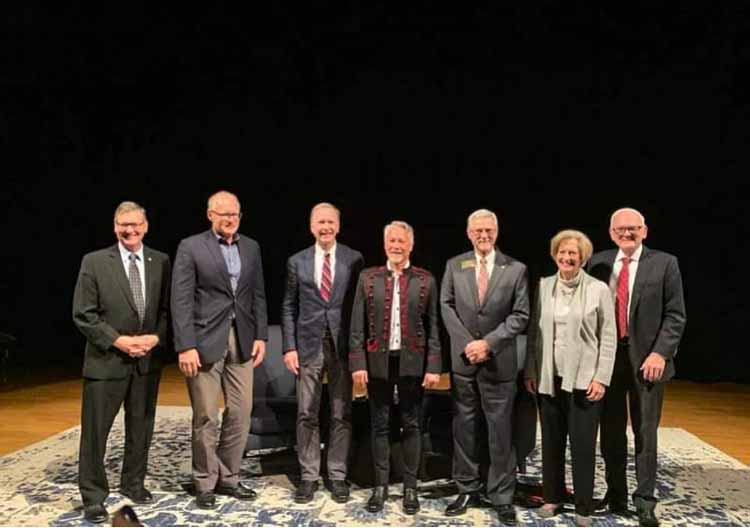
From left to right, Dr. Matt Baker (TAMU Dept. Head ALEC), Mr. Robert Rusiecki (Consul General), Mr. Neil Bush (Son of President H.W. Bush), Marek Probosz (the Star of the film), Dr. Jim Mazurkiewicz (TAMU Professor), Meredith Olson (Spouse of James Olson), James Olson (TAMU Professor and Former CIA Officer)
I also visited Texas! I was invited by this year's laureate of the title of Doctor Honoris Causa of Warsaw University of Life Sciences, Professor dr. Jim Mazurkiewicz at the Pilecki show at TAMU (Texas University A&M), at the Bush School, in an auditorium for 600 people on November 11. It was a celebration of Poland's Independence Day and the American Veteran's Day. There were a number of distinguished guests who welcomed me with pride and with deep emotion stirred by the scenes from the film. Neil Bush (the son of President George H. Bush), said: "On behalf of my father, I welcome you most cordially to the Bush School Conference Center, I know that it would be a great honor for my father to shake your hand personally and congratulate you on such a great role in a film which is historically important for the whole world. " Later, excellent speeches were given by James Olson (CIA officer from the Cold War period), Robert Rusiecki (Consul General in Houston), Professor Dr. Matt Baker (Rector of the TAMU Department), Professor dr. Jimmy Mazurkiewicz. Each of the speakers emphasized the role of Pilecki and other Polish heroes, paying tribute to their commitment and the sacrificing of their lives in the struggle for liberation, for the benefit of all mankind. After the screening and the moving discussion with the audience, I had the impression that that evening the lives of many of those present had changed.
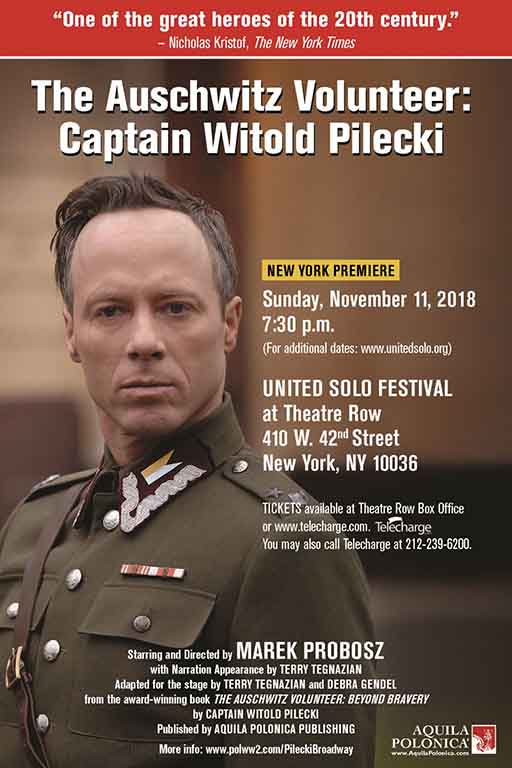
WB: On November 11, 2018, i.e. during the celebration of Independence, you played the role of Witold Pilecki in the self-directed monodrama The Auschwitz Volunteer: Captain Witold Pilecki at the world's largest single-actor theater festival — UNITED SOLO at the Theater ROW on Broadway. Congratulations, not many Poles achieve such success. We know that all tickets for each performance were sold out. Tell us about the festival and the monodrama.
MP: Hundreds of applications are submitted to the UNITED SOLO Festival every year. In 2018, around 1,000 applications from 6 continents were received. 130 performances were qualified for the festival competition. Having been selected for the festival was a huge accomplishment. And the fact that I played Pilecki on Independence Day, and the centennial of Poland regaining it, for which my hero gave his life, was something unique. I wore the original uniform of the 2nd Corps of General Anders, whose officer was Witold Pilecki. This uniform is a living story, it was lent to me for Broadway by Mr. Roman Liwak from Orange, California, whose godmother was Witold's wife, Maria Pilecka!
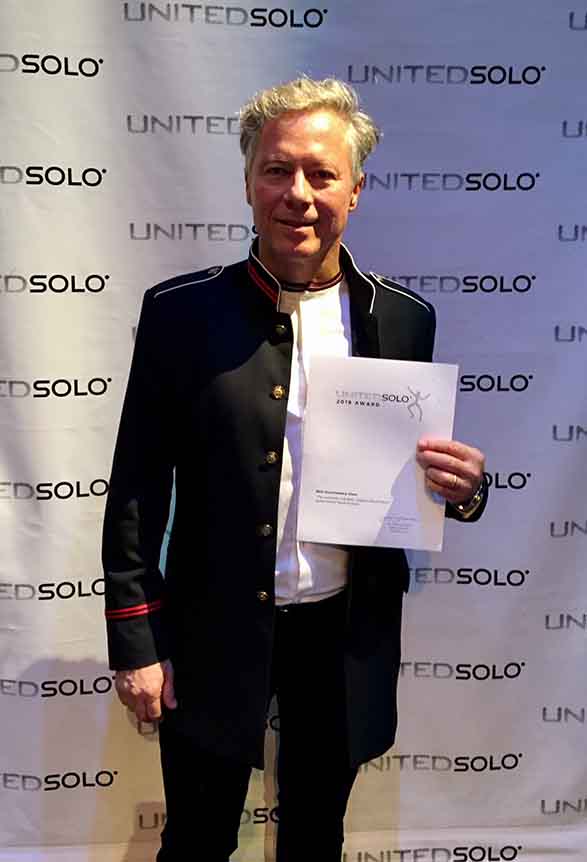
United SOLO 2018 Award — Best Documentary Show
Such experiences are never forgotten. Such energy and emotions developed on the stage that, after each performance, the shocked audience rewarded me with a 10-minute standing ovation. The theater critics gave my monodrama the maximum number of 5 stars. They wrote: “Pilecki rocked New York! This spectacle cannot be missed! " No wonder that after the 2-month festival, at the UNITED SOLO 2018 awards gala, The Auschwitz Volunteer: Captain Witold Pilecki won in the BEST DOCUMENTARY SHOW category. The result was a series of press and media interviews. Invitations to performances in the USA, Canada and Europe. Unfortunately, everything had to be canceled due to COVID.
WB: It's really amazing, Marek. Congratulations on your great success on Broadway. Thank you for the interview and for promoting the Captain in America. We wish you much success in the USA, in the world, and in Poland.
MP : Thank you, too, and greetings to all readers. As Norwid said, “The Fatherland is a great, collective obligation. And the independence generates the energy to work."
What can one competent and talented person do? They can do a lot. The example of Marek Probosz inspires optimism and hope. On the other hand, since 2005, no Hollywood-format film has been made about one of the "most important heroes of the 20th century," as The New York Times wrote about Pilecki . We believe that this interview will greatly facilitate the path for our professional experts from Warsaw to Mr. Marek Probosz, who undoubtedly knows how to make such a film, and knows with whom to have lunch in Los Angeles about this matter.
All photographs from the collection of Marek Probosz.
Translation from Polish by Andrew Woźniewicz.




